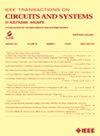切换系统的高效自学习跟踪控制:一种触发学习模型预测控制方法
IF 4.9
2区 工程技术
Q2 ENGINEERING, ELECTRICAL & ELECTRONIC
IEEE Transactions on Circuits and Systems II: Express Briefs
Pub Date : 2025-04-03
DOI:10.1109/TCSII.2025.3557419
引用次数: 0
摘要
现有的模型预测控制(MPC)方法在复杂环境下缺乏在线学习能力。强化学习(RL)需要大量的数据和计算资源来获得最优控制。本文用高效的自学方法来解决这个问题。“高效”是指使用触发学习机制(TLM)按需管理计算资源。提出了一种开关系统的触发学习模型预测控制(TL-MPC)方法。提出的TL-MPC通过TLM赋予MPC学习能力。TLM包括一个基于深度确定性策略梯度(DDPG)的控制增量自学习调优策略和一个性能驱动的事件触发策略。第一种策略是给MPC控制器一个控制增量来优化控制效果。第二种策略是通过比较表征系统性能的两个成本函数,实现按需学习,减少计算资源。此外,利用李雅普诺夫函数和平均停留时间技术分析了TL-MPC下切换系统的稳定性。最后,通过仿真验证了所提方法的有效性。本文章由计算机程序翻译,如有差异,请以英文原文为准。
Efficient Self-Learning Tracking Control for Switched Systems: A Triggered-Learning Model Predictive Control Method
Existing model predictive control (MPC) methods lack online learning capability in complex environments. Reinforcement learning (RL) requires a lot of data and computing resources to obtain optimal control. This brief uses efficient self-learning to solve this problem. “Efficient” refers to the use of triggered-learning mechanism (TLM) to manage computing resources on demand. This brief proposes a triggered-learning model predictive control (TL-MPC) method for switched systems. The proposed TL-MPC endows MPC with learning capabilities through the TLM. TLM includes a Deep Deterministic Policy Gradient (DDPG) based control incremental self-learning tuning strategy and a performance-driven event-triggering strategy. The first strategy is to give the MPC controller a control increment to optimize control effect. The second strategy is to realize the on-demand learning and reduce computational resources by comparing two cost functions that characterize the system performance. In addition, the stability of switched systems under TL-MPC is analyzed using the Lyapunov function and the average dwell time technique. Finally, the effectiveness of the proposed method is verified by simulation.
求助全文
通过发布文献求助,成功后即可免费获取论文全文。
去求助
来源期刊
CiteScore
7.90
自引率
20.50%
发文量
883
审稿时长
3.0 months
期刊介绍:
TCAS II publishes brief papers in the field specified by the theory, analysis, design, and practical implementations of circuits, and the application of circuit techniques to systems and to signal processing. Included is the whole spectrum from basic scientific theory to industrial applications. The field of interest covered includes:
Circuits: Analog, Digital and Mixed Signal Circuits and Systems
Nonlinear Circuits and Systems, Integrated Sensors, MEMS and Systems on Chip, Nanoscale Circuits and Systems, Optoelectronic
Circuits and Systems, Power Electronics and Systems
Software for Analog-and-Logic Circuits and Systems
Control aspects of Circuits and Systems.

 求助内容:
求助内容: 应助结果提醒方式:
应助结果提醒方式:


